Flea and tick preventatives are one of the most essential components of keeping your pup happy and healthy. Whether it's shampoos, collars, chews, or topical treatments, treating your dog for fleas and ticks should be a priority. However, the wide range of flea and tick medication options on the market can be overwhelming.
The best flea and tick medication for your canine will depend on your area, pest pressure, and the individual dog. Ultimately, it's always best to consult a vet so you can choose the best treatment for your pup and don't end up doing something that could be harmful.
Over-the-counter or prescription flea medication?
There are a variety of effective over-the-counter (OTC) and prescription flea & tick medications for dogs available. What's right for your dog will depend on various factors such as weight, lifestyle, and health, and a veterinarian will be able to help you choose what's best.
Prescription-strength solutions from your vet are a very strong choice. With Rx, your vet can prescribe the medication that is best for your pup, since they have knowledge of their health and behavior. This can create better outcomes than a pet parent choosing and administering an OTC flea & tick medication without a vet's advice. Additionally, it's believed that some OTC options can lose their effectiveness over time.
The best oral flea & tick prescriptions for dogs
Oral flea and tick treatments are prescribed medications that contain poisonous substances for insects—but are totally safe for dogs. These are absorbed by the dog's digestive system and carried through the bloodstream. When a pest bites the dog, the medication attacks its nervous system and it dies.
Modern oral flea and tick medications are isoxazoline-based and include drugs like NexGard, Bravecto, Simparica, Credelio. From these options, NexGard chews come highly recommended by Pawp veterinarians.
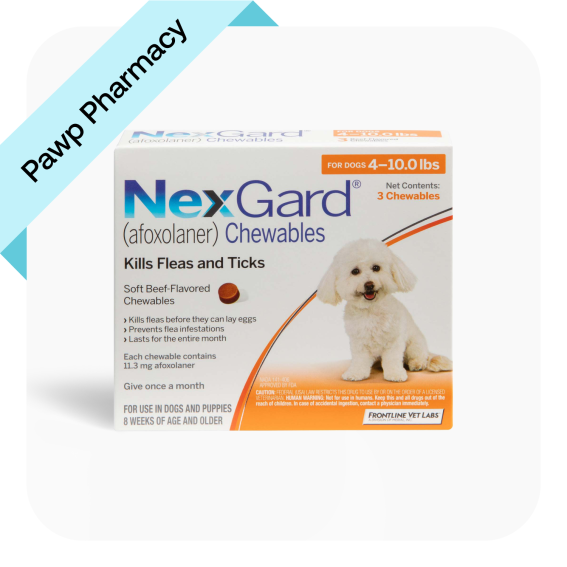
NexGard Chewable, 4-10 lbs, (Orange Box), Rx$30
If you're a Pawp member you can purchase your flea and tick medication through the Pawp Pharmacy. You will already need to have a prescription.
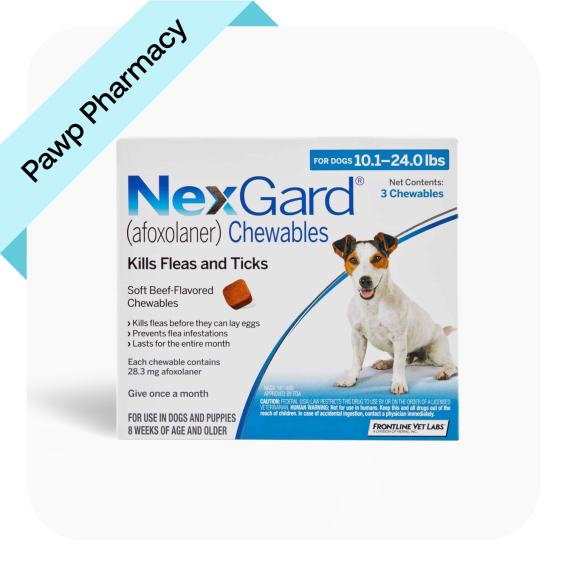
NexGard Chewable, 10.1-24 lbs, (Blue Box), Rx$30
If you're a Pawp member you can purchase your flea and tick medication through the Pawp Pharmacy. You will already need to have a prescription.
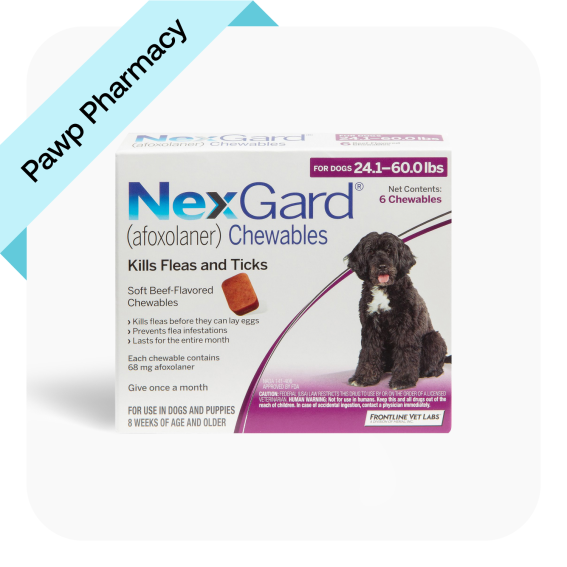
NexGard Chewable, 24.1-60 lbs, (Purple Box), Rx$30
If you're a Pawp member you can purchase your flea and tick medication through the Pawp Pharmacy. You will already need to have a prescription.
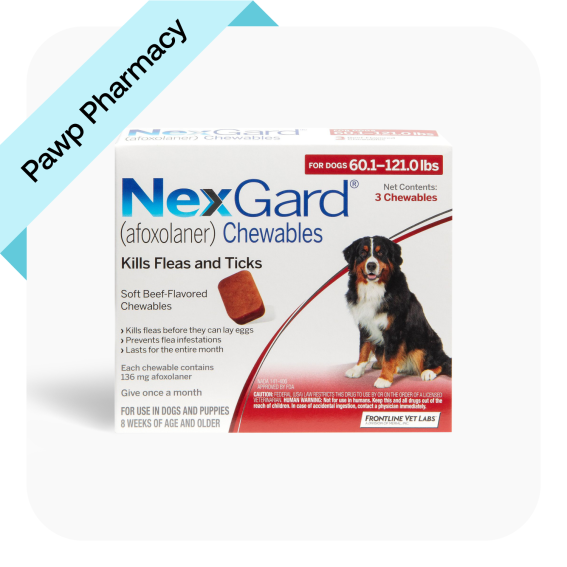
NexGard Chewable, 60.1-121 lbs, (Red Box), Rx$30
If you're a Pawp member you can purchase your flea and tick medication through the Pawp Pharmacy. You will already need to have a prescription.
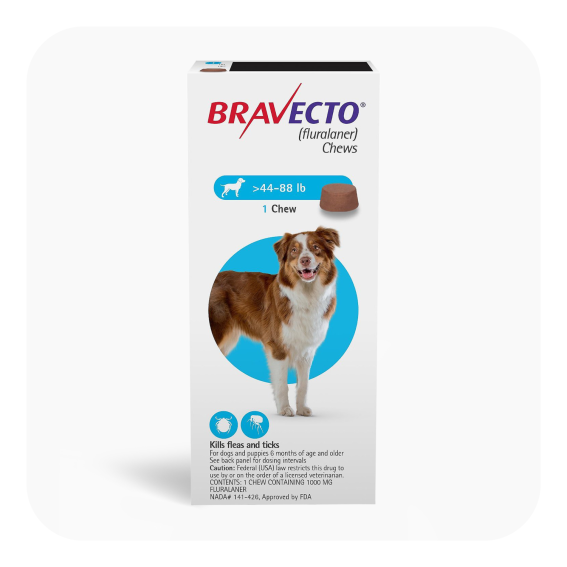
Bravecto Soft Chews for Dogs, 44-88 lbs$60
Shop Now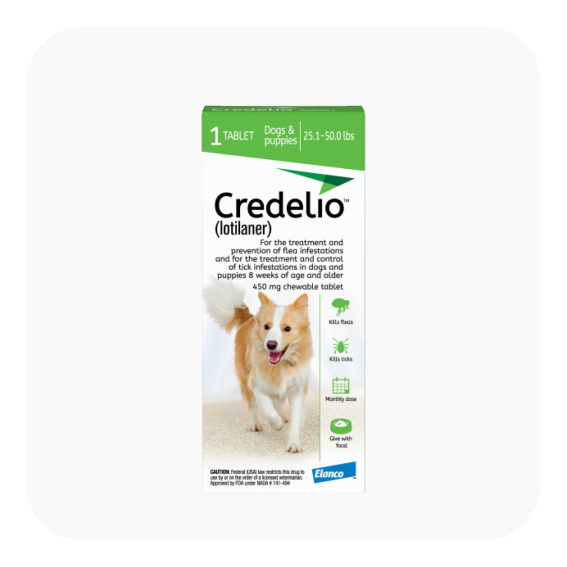
Credelio Chewable Tablet for Dogs$45
Shop Now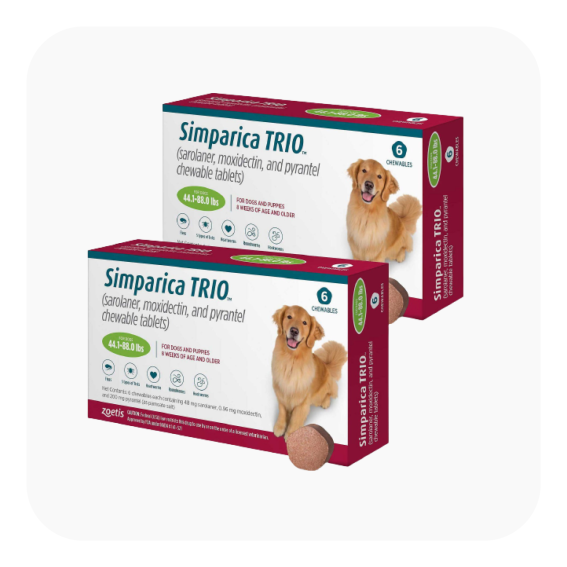
Simparica Trio Chewable Tablet for Dogs$337
Shop NowThese medications are considered safe for dogs, but vets won't prescribe them to dogs with digestive issues. Keep an eye on your pup once they consume the medicine, and if they throw up right away, these might not be the best option.
Additionally, oral flea and tick medications are thought to lower the seizure threshold in dogs prone to seizures. In other words, dogs that would likely have gone on to have seizures anyway, or who are being treated for epilepsy, will be more likely to have seizures if given these drugs, so it's best to talk to your vet about what is right for your pup.
With chews, it's also important to make sure you're purchasing the chewable that is appropriate for your dog's weight, and a vet can help with that.
The best flea & tick collars for dogs
Flea collars can both prevent and kill fleas, depending on which product you choose. They work by either emitting a pesticide into the area surrounding the pet, or releasing a pesticide that becomes absorbed by the pet’s skin. The collar releases flea-repelling chemicals over a period of time and can provide protection for your dog for months.
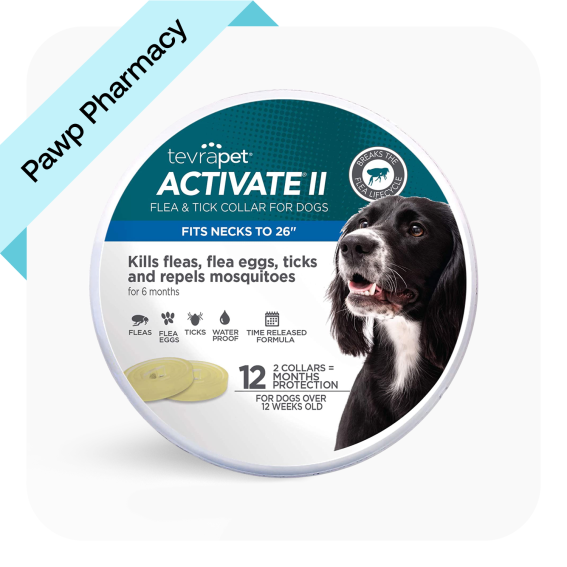
Tevrapet Flea & Tick Collar, Dogs$41
Shop Now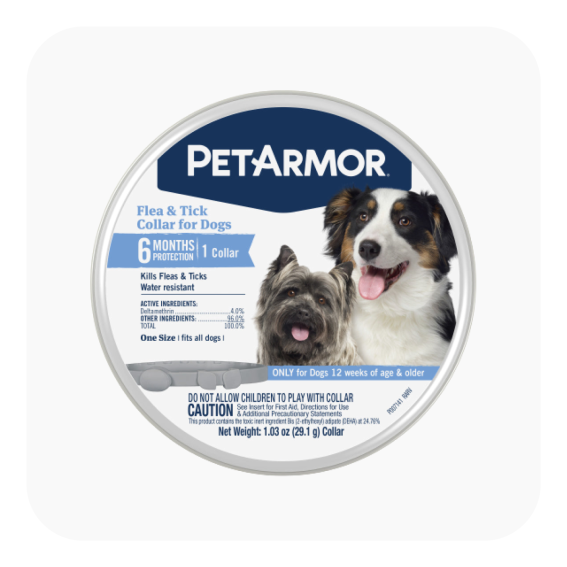
PetArmor Flea & Tick Collar for Dogs, 2 Collars$30
Shop NowIf you choose to use a flea collar, it's recommended to use these with caution if your dog is a chewer, as these can be dangerous to pets when chewed or swallowed. For more complete coverage, supplement with oral medications.
While collars have their place and can be a preventative solution, spot-on and oral medications are generally best at providing a quick kill.
Best topical flea & tick medications for dogs
Topical treatments prevent your pooch from getting bitten by releasing a chemical that repels and kills fleas and ticks. They're absorbed into the upper layers of the skin and spread across the whole body by the natural oils from the skin.
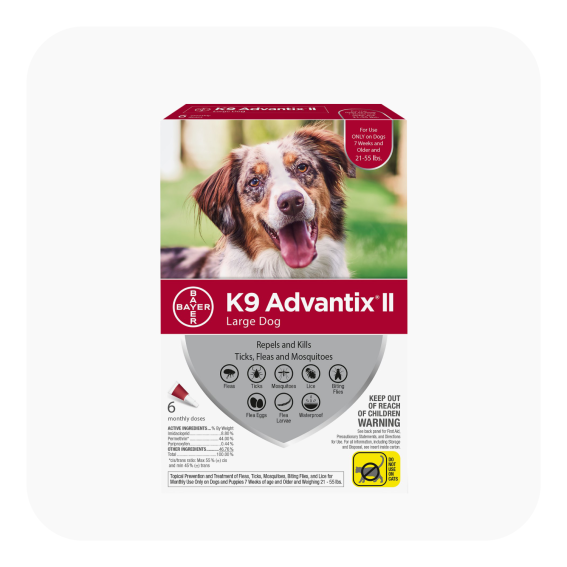
K9 Advantix II Flea & Tick Spot Treatment for Dogs$70
Shop Now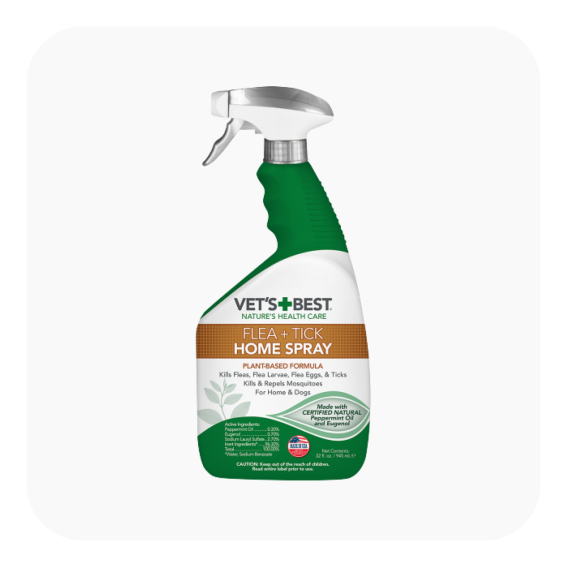
Vet's Best Flea & Tick Home Spray$20
Shop Now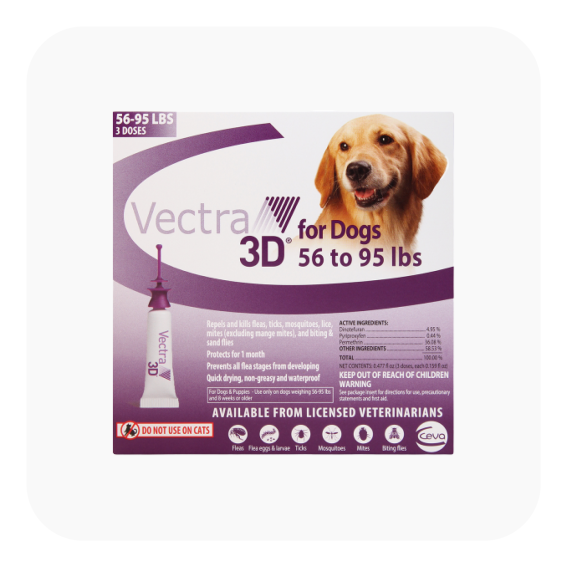
Vectra Flea & Tick Spot Treatment for Dogs$100
Shop NowA lot of different drugs can be used for these topical treatments, but the most common to kill both fleas and ticks is fipronil. This non-prescription treatment has been popular for years, but some vet experts and pet parents are reporting that it's becoming less effective.
One drawback of topical flea medications is that they won’t work if the dog has recently been bathed (in the last few days) or is bathed a few days after application, as this washes off the skin oils that help these products to spread. Therefore, topical flea treatments are not suitable for dogs that like to swim. The treatment will not only wash off, but can also be environmentally toxic.
"Topical flea and tick medications can be a great option for many pet parents," says Dr. Jo Myers, DVM. "There are safe and effective options if you know exactly what to look for, and some of them are available without a prescription. Topicals can also be more cost effective, especially when you talk to a veterinary professional to make sure you're choosing the right product and using it correctly."
The best flea & tick shampoos for dogs
Flea and tick shampoo works by killing the insects that are already on the dog. Unfortunately, they have very little effectiveness for keeping those fleas and ticks off your dog because they don't leave any chemical to keep repelling. It's best to use flea & tick shampoos in conjunction with some of the other treatments.
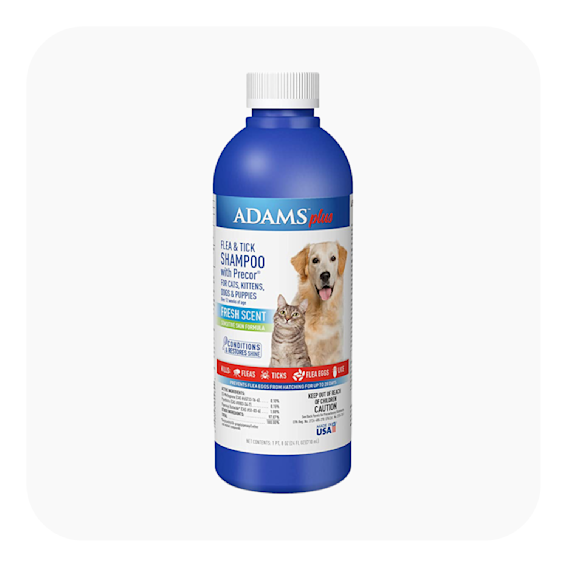
Adams Plus Flea & Tick Shampoo$27
Shop Now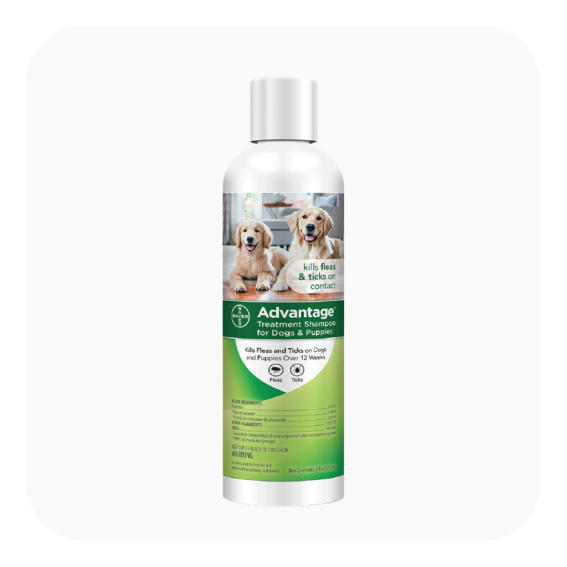
Advantage Flea & Tick Treatment Shampoo for Dogs & Puppies$23
Shop Now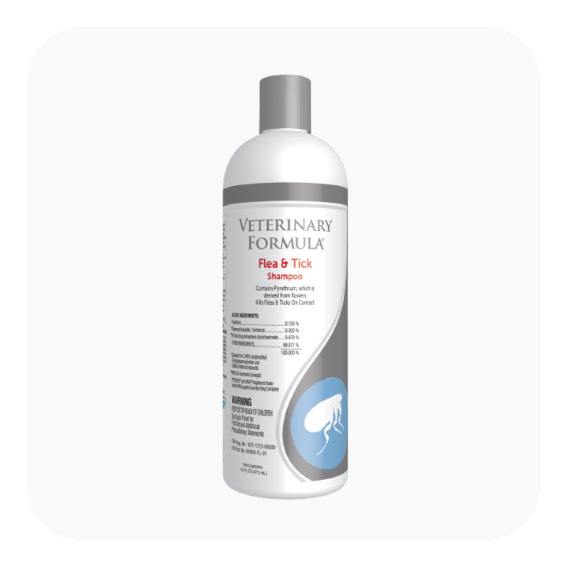
Veterinary Formula Clinical Care Flea and Tick Shampoo for Dogs and Cats$10.12
This Flea & Tick Shampoo has up to 3x more active ingredients than other brands. It’s made with pyrethrum to kill and control fleas and ticks on contact, while soothing and cleansing your pet’s skin and coat. It helps with flea dirt, itching, hair loss, and more. The shampoo is paraben- and soap-free, using gentle, pH-balanced cleansers and it's safe for both dogs and cats.
Remember, while shampoo will indeed the kill fleas it comes into contact with, it only treats the fleas currently living on your pet—which is a very small proportion of the population. In fact, 95% of the infestation is likely in your house in the form of eggs, larvae, and pupae, and the shampoo can't do anything about these.
Make sure flea & tick shampoo isn't the only treatment you're using.
Tips & tricks for flea medications for dogs
When it comes to getting rid of fleas, it's not quite a one-and-done situation.
Here are some quick tips from Dr. Myers to help you eliminate these unwelcome guests once and for all:
To terminate an existing flea problem, you will need to treat every pet in the household, on time, with something safe and effective for at least three months.
To keep the fleas from coming right back, you'll need to keep all pets who go outside on a safe and effective form of flea control forever.
It's very common for the flea population to look worse when you first begin treatment. Because the fleas get more active, you'll see more of them. Don't let this fool you into thinking it isn't working. If you're using something your veterinary professional advised, it'll work. It just takes time.
Assuming you're using something recommended by a veterinary professional, most of the time when a pet parent thinks the product isn't working, their perceived failure of the product is actually due to either failing to use it correctly, not using it on all pets in the household, not applying or administering it on time, or not giving it long enough.
Talk to a vet about flea & tick treatments
Dr. Myers reiterates that there really is no one-size-fits-all when it comes to flea treatment and prevention.
"The best strategy for you will depend on the health status of your pets, how many pets you have, factors in your lifestyle, and your environment," says Dr. Myers.
Talk to a vet to find the best flea and tick medication for your dog.
